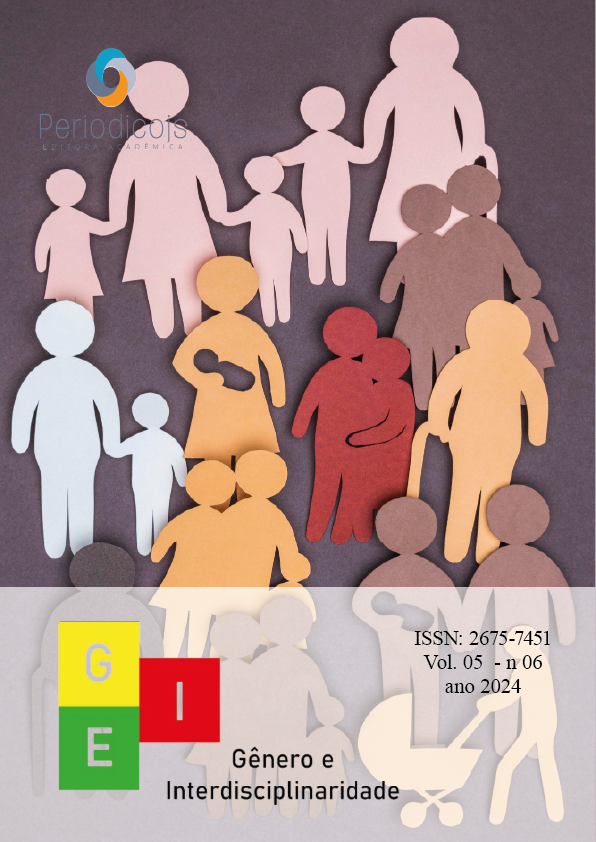Abstract
The active methodologies to ensure teaching learning, are pedagogical approaches that seek to involve students actively in the learning process, promoting the construction of knowledge in a more significant and participatory way. The active methodology by revolutions consists of a learning approach in which students are divided into small groups and work in stations of different activities. Each station usually contains a specific task or design for students to perform within a certain period of time. After this period, students move to the next season and so on, until they have passed all the stations. The research was conducted with a 7th grade class of elementary school from a municipal school located in the rural area of Vianópolis, Goiás. The data collection was due to the observation of the students during the activities and a questionnaire that they answered after the application of methodology. The results indicate that the use of this methodology promotes a stimulus to discussion, creation and reflection on the content addressed, making the students protagonists of their learning. The activity allowed students to work independently and collaboratively, exploring different themes, skills and aspects of content. In addition, it promoted students' active engagement and learning autonomy. Attitudes such as providing listening to students, valuing their opinions, exercising empathy, answering questions, encouraging them, among others, were observed and favoring the creation of a favorable environment for teaching learning. The structure of the Station Methodology by rotation is flexible and should be adapted according to the learning needs and objectives of each discipline and class. The important thing is that students have the opportunity to actively interact with content and develop collaborative, reflective and criticism
References
BACICH, L.; MORAN, J. M. (Orgs.). Metodologias ativas para uma educação inovadora: uma abordagem teórico-prática. Recurso eletrônico. Porto Alegre: Penso, 2018. 430 p.
BAUMAN, Zygmunt. Os desafios da educação: aprender a caminhar sobre areias movediças. Cadernos de Pesquisa, v. 39, n. 137, maio/ago.2009.
DIESEL, Aline, BALDDEZ, Alda Leila Santos & MARTINS, Silvana Neumann. 2017. Os princípios das metodologias ativas de ensino: uma abordagem teórica. Revista Thema, v. 14, n. 1, p. 268 a 288.
FREIRE, Paulo. Pedagogia da Autonomia. Saberes necessários à prática educativa. 51ªed. Rio de Janeiro: Paz e terra, 2015.
KASTRUP, V. Práticas de Estudo Contemporâneas e a Aprendizagem da Atenção. Psicologia & Sociedade, n. 25, v.1, pag. 193-202, 2013.SANTOS, E. G. dos. A História Da Ciência No Cinema: Contribuições Para A Problematização Da Concepção De Natureza Da Ciência. 2011. 124 f. Dissertação (Mestrado) - Curso de Mestrado Profissional em Ensino Científico e Tecnológico, Universidade Regional Integrada do Alto Uruguai e Missões -Uri, Santo
MELO, Pablo Alexandre Oliveira, et al. Explorando abordagens inovadoras na educação física escolar. Ciências Humanas, v. 27 (126). Disponível em <https://revistaft.com.br/explorandoabordagens-inovadoras-na-educacao-fisica-escolar%C2%B9/>. Acesso em 25 de maio de 2024.
SANTOS, Elaine Fernanda dos; SANTOS, Mariana Felix; NETTO, Antônio Gomes da Silva; SANTOS, Sindiany Suelen Caduda dos. 2020. Ensino Híbrido e as potencialidades do modelo de Rotação por Estações para ensinar e aprender Ciências e Biologia na Educação Básica. Brazilian Journal of Development. Curitiba, v. 6, n.10, p. 76129-76147. Disponível em <https://ojs.brazilianjournals.com.br/ojs/index.php/BRJD/article/view/17909/14507>. Acesso em 15 de maio de 2024.
SANTOS, Graziélli Teixeira da Rocha; RAMOS, Ruama Ferraz & QUERIDO, Marcos Vinícius Ferraz Mayela. 2024. Metodologias Ativas de ensino no contexto atual do ensino. III Congresso Brasileiro On-line de Ensino, Pesquisa e Extensão. Disponível em < https://ime.events/ensipex2024/pdf/30027>. Acesso em 25 de maio de 2024.
SPAHR, K. Stop lecturing, start teaching: an activities-based approach to library instruction. In: BRICK & CLICK: AN ACADEMIC CONFERENCE, 17., 2017, Maryville. Proceedings [...] Maryville: [s.n.], 2017. p. 98-106.SPIESS, M. R.; MATTEDI, M. A. Eventos científicos: da Pirâmide Reputacional aos círculos persuasivos. Revista Sociedade e Estado, v. 35, n. 2, p. 441 -472, mai./ago. 2020.
SERBIM, Flávia Braga do Nascimento & SANTOS, Adriana Cavalcanti. 2021. Metodologia ativa no ensino de Química: avaliação dos contributos de uma proposta de rotação por estações de aprendizagem. Revista Electrónica de Enseñanza de las Ciencias, 20(1), 49-72





